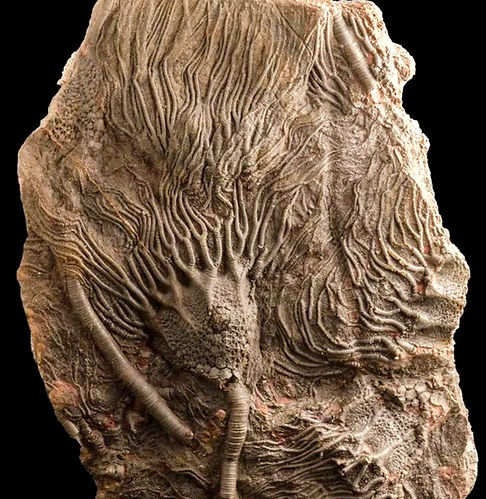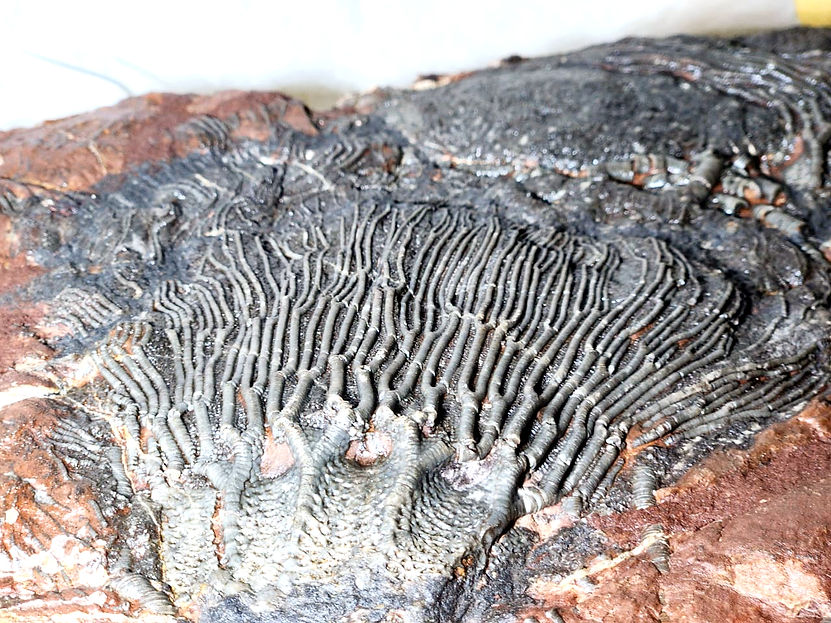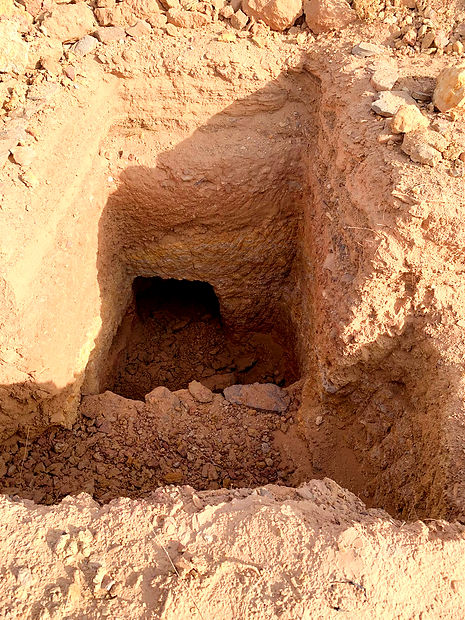About Crinoids
Crinoids are commonly known as sea lilies, though they are animals, not plants. Crinoids are echinoderms related to starfish, sea urchins, and brittle stars.


Survivors of mass extinction
Many crinoid traits are like other members of their phylum. Such traits include tube feet, radial symmetry, a water vascular system, and appendages in multiples of five (pentameral).
Most of the Paleozoic crinoid species attached themselves to substrates on the ocean floor. Crinoids are famous for their feathery, tentacle-like appendages that opened up like a flower and captured particles of food such as plankton. Though crinoids appeared in the Ordovician (488 mya), they survived the Permian mass extinction and diversified into hundreds of species

Taxonomy and Origins
The earliest known crinoids are from the Ordovician, which began about 488 mya. Some scientists assert that a fossil from the Cambrian Burgess Shale may record an earlier emergence. This fossil is called Echmatocrinus. The Burgess Shale is considered 500 mya. Approximately 625 species of crinoids still survive today. They are the descendants of the crinoids which survived the mass extinction at the end of the Permian. It is estimated that over 6000 species of crinoids have lived on the Earth



Excavation process
Here is an example of how the drilling process is done on site
The highly detailed Scyphocrinite crinoids are Upper Silurian (420 million years old) and mined near Boutschrafin. Erfoud, Morocco. To reach the crinoid layer the workers must dig deep vertical shafts, sometimes 30 feet deep.
They then. tunnel horizontally along this layer to extract plates of crinoids. These plates must then be brought up to the surface in small amounts. pieces using a bucket where they were prepared.
One can only imagine that is back-breaking, hot, and dangerous work.
